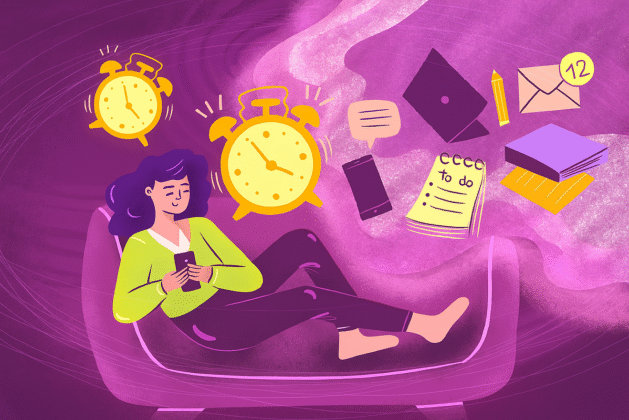We all procrastinate at some point—whether it’s putting off studying for an exam, delaying a work project, or avoiding chores. But procrastination isn’t just about laziness. In fact, psychology reveals that it’s deeply connected to emotions, self-control, and the way our brain handles stress. Understanding why we procrastinate is the first step toward breaking the cycle and becoming more productive.
Table of Contents
Introduction
Have you ever promised yourself you’d start working “in five minutes” only to realize hours have passed and the task is still untouched? That’s procrastination, and it’s something most people experience regularly. While it might feel like a bad habit, procrastination is more than simply being careless or unmotivated. Psychology suggests that it is a coping mechanism—our brain’s way of avoiding stress, fear, or discomfort linked to a task.
In this article, we’ll explore the hidden psychology behind why we procrastinate, the science of how it affects our brain, and practical strategies to overcome it.
The Science of Procrastination: It’s Not Laziness
Many people mistake procrastination for laziness, but the two are very different. Laziness is a lack of willingness to act, while it happens when you want to do something but struggle to start.
Psychologists explain it is as an emotional regulation problem. When a task feels overwhelming, boring, or stressful, our brain seeks short-term relief by avoiding it. Instead, we distract ourselves with easier or more enjoyable activities, like scrolling through social media or cleaning our room.
The Brain’s Role in Delaying Tasks
Two key parts of the brain are involved in procrastination:
- The Prefrontal Cortex – responsible for planning, decision-making, and self-control.
- The Limbic System – the emotional center of the brain that seeks pleasure and avoids discomfort.
When these two parts conflict, procrastination occurs. The limbic system wants to escape unpleasant emotions, while the prefrontal cortex knows the task is important. Often, the limbic system wins in the short term, which is why we delay tasks even when we know it will hurt us later.
The Emotional Triggers
Several emotions push us into procrastination mode, including:
- Fear of failure – Worrying about not doing well can prevent us from starting at all.
- Perfectionism – The desire to make everything flawless often delays progress.
- Overwhelm – Big tasks feel impossible, so we avoid them altogether.
- Low motivation – When rewards feel distant, we prioritize short-term comfort.
Why it Feels Good (Temporarily)
In the moment, it feels rewarding. When we avoid a stressful task, the brain releases dopamine—a “feel-good” chemical. This creates a cycle: the more we delay, the more we train our brain to seek temporary relief instead of long-term satisfaction. Unfortunately, this leads to guilt, stress, and lower productivity later.
The Hidden Costs
While procrastination might bring short-term comfort, the long-term effects can be damaging. It can lead to:
- Missed deadlines and poor performance at school or work.
- Higher stress and anxiety levels.
- Lower self-esteem from constant guilt and regret.
- Strained relationships when delays affect others.
How to Break Free from Procrastination
Overcoming procrastination isn’t about forcing yourself to “just do it.” It’s about addressing the emotions behind the delay. Here are some psychology-backed strategies:
- Break tasks into smaller steps – Big projects feel less overwhelming when divided into simple actions.
- Use the 5-Minute Rule – Commit to working for just five minutes. Often, starting is the hardest part.
- Shift focus to progress, not perfection – Done is better than perfect.
- Reward yourself for small wins – Positive reinforcement encourages consistency.
- Practice self-compassion – Avoid harsh self-criticism; it only increases avoidance.
Conclusion
This isn’t a sign of laziness—it’s the brain’s way of managing emotions like fear, stress, or perfectionism. By understanding the psychology behind procrastination, we can learn healthier ways to cope with discomfort and take back control of our time.
The next time you catch yourself delaying a task, remember: procrastination is not about your abilities—it’s about your emotions. Recognizing this can help you break the cycle and move toward a more productive and balanced life.
Read More: Aerodynamics Uncovered: Why Airplanes Can Soar While Cars Can’t




